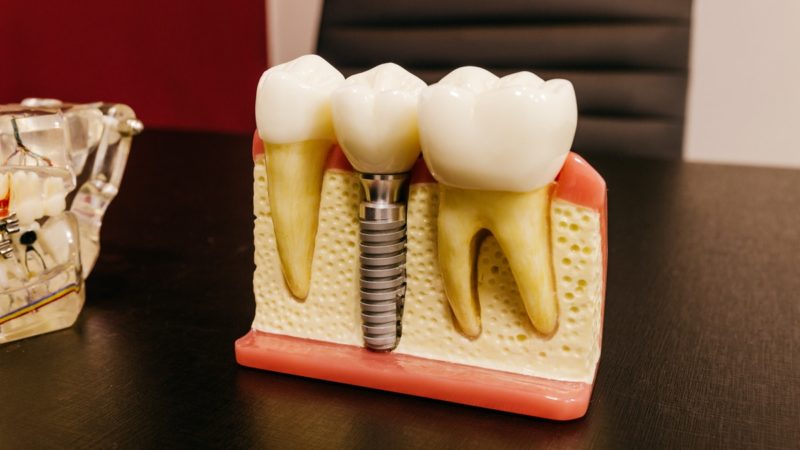Investigating the causes of dental implant infection
Dental implants work just like natural teeth and can get infected just like natural teeth.. Infected dental implants can malfunction or fail if neglected or not regularly cared for by a dental professional.. In this article from Dr. Hossein Borjian's website The best gum surgeon in Isfahan We will examine the causes of dental implant infection.
Infection around the dental implant is a type of gum disease known as peri-implantitis. This infection can be as a result of smoking, improper oral and dental hygiene, diabetes, immune system deficiency, uneven bite, functional habits. (Grinding teeth) or an allergic reaction to the implant itself. If left untreated, gradual bone loss and infection can lead to the loss of the implant. Early diagnosis and treatment can lead to recovery. This article examines possible risk factors and symptoms to watch out for.
Causes of infection in dental implants
The most common causes of implant infection are::
- poor oral hygiene,
- smoking,
- Previous periodontal disease.
Proper implant care is critical. If you don't brush and floss daily, you allow bacteria and fungi to grow in your mouth.. These gradually make their way to the soft and hard tissues around the implant. Infections may lead to a variety of dental implant problems.
Smokers have a higher concentration of an enzyme called arginase in their saliva. This enzyme is said to reduce nitric oxide production and acidify saliva, creating a perfect environment for bacteria to grow.. Therefore, smokers are more vulnerable to dental implant infections.
Patients with history periodontitis are also at greater risk. Of course, this should be treated before getting implants, but gum disease is reversible. Bone loss is also more prominent in such cases and leads to a higher probability of implant treatment failure.

Overall, implant infection is almost always associated with patient-centered risk factors. The following cases can also be mentioned, but the rate of infection caused by these cases is very low:
- Allergy to titanium
- Systemic diseases such as diabetes,
- Excessive amount of glue at the time of placing the cover, and
- Uneven distribution of compressive force in biting.
Signs of infection of dental implants
If you notice any of these symptoms, contact your dentist immediately:
- swelling around the implant,
- change in gum color,
- bleeding from the implant site,
- shell implant,
- then,
- throbbing in the ears, and
- Pain that does not go away with medicine.
Pain associated with an implant infection is relatively rare, but if present, it usually means the problem is serious. Other causes of concern are similar to a sinus lift and symptoms of bone graft infection. Remember that the absence of pain does not always mean the absence of disease. For this reason, proper and timely dental examinations are very important.
Symptoms of dental implant infection also include deep pre-implant cavities and progressive bone loss in the affected area.. However, it can only be diagnosed by a specialist such as a dentist or periodontist.
The Instagram page of Dr. Hossein Borjian, the best gum surgeon in Isfahan
Stages of dental implant infection
Dental implant infection can be described in two stages. The first stage is called peri-implant mucositis. If left untreated, it can develop into a more serious condition around the implant. Both similarly with gum disease They progress, but they may progress more quickly. The reason for this is that the implant connection is less durable than the natural tooth. Symptoms can even develop years after the implant is placed.
Peri-implant mucositis
Patients may experience inflammation of the soft tissues around the implant. When there is no bone loss, the infection is completely reversible. This does not mean that the condition is not serious. In more severe cases, surgical treatment may be necessary. Either way, peri-implant mucositis should be treated as soon as possible to prevent further damage. If not taken care of, it can lead to the loss of the implant in the future.
peri-implantitis
The second stage of dental implant infection is called peri-implantitis. It affects the surrounding soft and hard tissues and is associated with bone loss in that area. This situation after bone accumulation, when healing (For example, overlay placement) It's already done, it's happening. Peri-implantitis does not necessarily lead to implant failure. It should be treated as soon as symptoms appear.
Attention :
- The scientific accuracy of the above published material should be confirmed by the patient's personal consultation with Dr. Borjian.
- This article is managed and published by the site admin.



